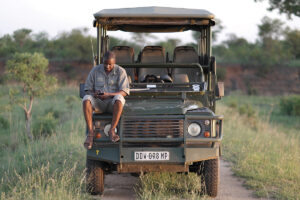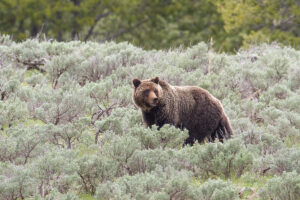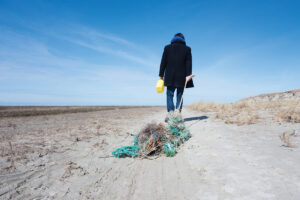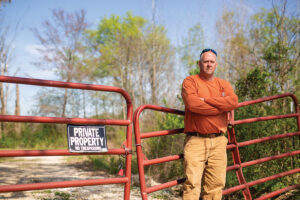Pandemic spells trouble for African wildlife. The Covid-19 pandemic has shut down tourism that funds wildlife conservation across Africa. Hunting guides, wildlife safari operators, conservancies, and government agencies all face a decrease in revenue, meaning less money available for programs that combat poaching or mitigate human-wildlife conflicts in countries like South Africa, Kenya, and Zimbabwe. This is causing some conservationists to rethink the way conservation is financed in Africa. As PERC research fellow Catherine Semcer recently told The New York Times, “We don’t want to decouple conservation from tourism, but I think we need to expand the range of sectors that support it.”
Bearly listed? Despite the Fish and Wildlife Service’s assertion that Endangered Species Act protections for the Greater Yellowstone grizzly are no longer needed or necessary, debate over whether to delist the bears rages on. The Ninth Circuit Court of Appeals recently heard oral arguments about the population’s status, a case to which PERC submitted an amicus brief in 2019. The brief stressed a point that PERC also underlined in a recent public comment to the agency regarding the grizzly’s status: a main driver of species recovery is the notion that it “will lead to a return to state management and reduced regulatory burdens for landowners”—something that perpetual federal listing would undermine.
Digging up disincentives. A new report by the Government Accountability Office estimates that 390,000 abandoned mines pockmark public lands in the West, degrading the environment for people and wildlife. Federal cleanups at such sites are slow, expensive, and limited by available funding. However, as research fellow Jonathan Wood explains in a February report for PERC, private groups would voluntarily clean up more abandoned mine sites if it wasn’t for regulatory disincentives that expose them to liability risk for the full cost of pollution they didn’t produce. Wood demonstrates that rewarding voluntary action and reducing liability would give ample incentive to Good Samaritans interested in cleaning up abandoned mines.
Paying with plastic. At least 8 million tons of plastic wash into the ocean each year, making up 80 percent of all marine debris. The Plastic Bank aims to change that by transforming the material into currency. Collectors gather plastic waste that might otherwise flow into the ocean and use it to buy everything from cooking fuel to school tuition at Plastic Bank stores. The company recycles the material and sells it to S.C. Johnson, Evian, and other corporations interested in reducing marine waste. Now in Haiti, the Philippines, and Indonesia, and with plans to expand into Brazil, the Plastic Bank has kept more than 22 million pounds of debris out of the ocean.
Yellowstone research hotter than ever. In 1969, scientists discovered a microbe in Yellowstone’s hot springs that later revolutionized scientists’ ability to rapidly replicate DNA samples. The process, called polymerase chain reaction, or PCR, is now commonly used to identify criminals and research cancer, and today it is central to the standard tests that diagnose Covid-19. Yellowstone has received none of the economic value PCR has brought society. Since that discovery, however, the National Park Service has entered into “benefits-sharing agreements” between parks and researchers, meaning that the next great biological discovery could transform science while also helping fund the parks we love.
Conservation deal put out to pasture. In the late 1990s, the nonprofit Grand Canyon Trust struck a deal with several ranchers in Utah: The trust would pay the ranchers to voluntarily retire their grazing permits to lands within Grand Staircase-Escalante National Monument. The deal was a win-win. The trust wanted to preserve the monument’s delicate ecosystem, and the ranchers preferred to graze elsewhere. Two decades later, the Trump administration now plans to reopen grazing on almost all of the land protected by the deal, a reversal that threatens the local environment and undercuts trust in future cooperative agreements between ranchers and conservationists.
A promising candidate. In March, the Fish and Wildlife Service announced a plan to incorporate the transportation and energy sectors into the recovery of the monarch butterfly. Under a “candidate conservation agreement with assurances,” state transportation departments and energy industry partners will conserve and plant milkweed and other nectar plants that sustain the migratory insect. In return, the partners would face no additional restrictions if the agency lists the butterfly under the Endangered Species Act, a decision expected by the end of 2020. The timing is apt—winter monarch counts suggested a 50 percent population decline from a year ago, largely attributed to drought.
Smile, you’re on warrantless camera. Terry Rainwaters inexplicably found two trail cameras planted on his 136-acre property in 2017. A few days later, they were gone. He eventually learned that the Tennessee Wildlife Resources Agency posted the cams—without a warrant—to monitor for potential hunting violations. The agency claims it can get away with the surveillance due to a 1920s U.S. Supreme Court decision that ruled unreasonable searches don’t apply to “open fields.” The Institute for Justice is representing Rainwaters and his neighbors in a lawsuit against the agency, hoping that Tennessee will follow a handful of other states that have rejected the outdated and wrongheaded doctrine.











